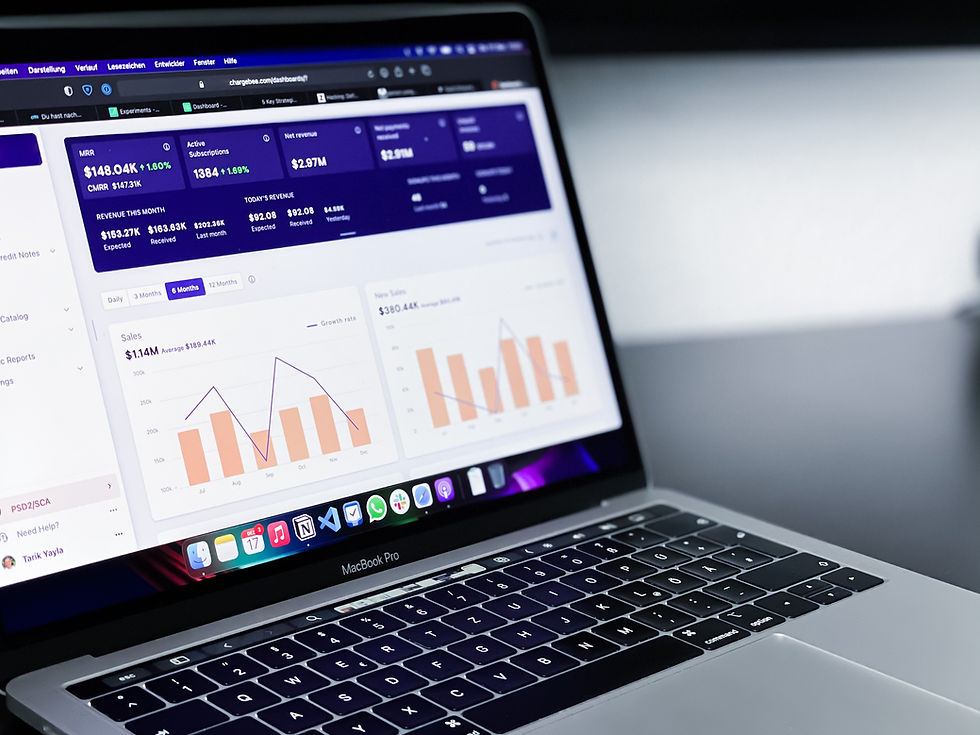The future of AI and the digital marketing industry
- Wendy Monkley

- Sep 12, 2023
- 3 min read
The future of AI in the digital marketing industry is promising, with the potential to revolutionise the way businesses connect with their customers and target new audiences. This blog post will explore how AI has affected the digital marketing industry and the developments it may offer.

How AI is affecting digital marketing
One of the most significant ways AI is being used in digital marketing is through the implementation of chatbots. These virtual assistants can handle a wide range of customer service tasks, such as answering frequently asked questions, helping customers navigate a website, and even making product recommendations. With the advancement of natural language processing (NLP) technology, chatbots are becoming more sophisticated and are able to understand and respond to customer queries more accurately.
Another area where AI is making an impact is in the realm of data analysis. Machine learning algorithms can analyse large amounts of data and identify patterns, which can then be used to create targeted marketing campaigns. This allows businesses to gain a deeper understanding of their customers and create more personalised marketing experiences.
AI is also being used in the field of creative content generation. AI-powered tools are able to create written content, images, and even videos, which can be used in marketing campaigns. These tools can save time and increase efficiency for businesses, allowing them to focus on other important tasks.
In addition, AI can be used for programmatic advertising, which uses algorithms to automate the buying and placement of advertising. By analysing data on consumer behaviour, programmatic advertising can target the right audience at the right time with the right message. This can lead to more effective and efficient advertising campaigns.
However, while AI has the potential to bring significant benefits to the digital marketing industry, it also raises some concerns. One of the main concerns is around job displacement, as machines are able to perform tasks that were previously done by humans. It's important that businesses ensure that their AI implementation strategies take this into consideration and provide opportunities for retraining and the up-skilling of employees.

How AI may affect digital marketing
The creation of content
The development of content is among the key areas where AI will have an impact on marketing. A brand-new industry called content intelligence has emerged as a result of AI, in which AI tools provide content creators with data-driven analyses and input. As a result, digital marketers have the option to improve their content development efforts and have more success by setting up a continuous feedback cycle. This is how AI is expected to have a positive influence on content creation:
Create optimised social media posts fast
Improve rankings and create data-driven blog entries.
Perform efficient keyword research
Predictive analysis
AI will alter the future of digital marketing through predictive analytics. With the use of AI, digital marketers will be able to predict consumer behaviour more easily and create campaigns or goods that will be more successful. The most intelligent AI systems will function to employ algorithms to examine enormous data sets in order to optimise the data toward a certain goal.
Recommendations of products
Machine learning, a kind of AI, will also assist in improving online product recommendations. Digital marketers will be able to make more accurate predictions about the things that customers will purchase with the correct AI tools. Fast recommendations which are customised to each customer will be made by AI-powered recommendation engines based on their activity and interests.

The bottom line
AI is set to play a major role in the digital marketing industry in the future. Businesses that embrace and invest in this technology will have a competitive advantage in the marketplace. However, it's important for businesses to consider the potential consequences and ensure that their AI strategy is aligned with their overall business goals and values.







Comments